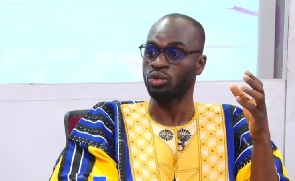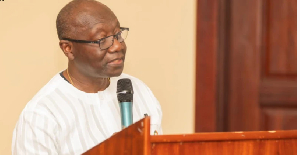Economic Advisor from the Office of the Vice President, Dr Tia Abdul Kabiru Mahama, has punched holes into the proposed 24-hour economy championed by the National Democratic Congress (NDC) flagbearer, John Dramani Mahama.
According to him, the prerequisites for such a policy to thrive have been not met in the current Ghanaian context.
The idea of a 24-hour economy introduced by John Mahama, has sparked varied reactions from experts, the New Patriotic Party (NPP), and other stakeholders.
One prominent critic of this policy is the Vice President and NPP flagbearer, Dr. Mahamudu Bawumia, during a campaign in Narilegu in the Northern Region, who said that the policy is not novel as some sectors of the economy already practice the 24-hour economy.
Dr Tia Abdl Kabiru Mahama, who was speaking on JoyNews on Saturday, November 25, 2023, raised concerns that will hinder the implementation of the policy.
He said: “I have given the foundation for this policy and this foundation is based on certain prerequisites. The former president, John Mahama rightly mentioned security. A country that is struggling to deal with a police-to-civilian ratio of 1:500 is thinking of implementing a 24-hour economy.
“There is infrastructure, a country where the cost of energy is still high for the production of goods and services by routine production, you are thinking of a 24-hour economy.
“Aside from that, in a country where the work culture is not so different from the advanced country, you want to implement a 24-hour economy.
“Additionally, this policy hinged on huge infrastructural development like transportation. A country that doesn't have a proper road network between the north and the south, no proper railway system and we are thinking of a 24-hour economy,” he added.
Dr Tia Abdl Kabiru Mahama noted that there is a considerable gap between successful policy implementations in other countries and what Ghana is attempting to achieve.
To him, Bawumia's comment about the 24-hour economy stemmed from a holistic evaluation of the Ghanaian economy's structure and the practical challenges associated with the proposed policy.
“The 24-hour economy is a post-industrial and development transition. In other words, countries that have attained a high mass of consumption and I have given an example of Sydney where their economy is 0.1% of Agriculture, our economy is still around 40%. So, there is a huge gap between the policies that have been implemented successfully elsewhere and what we are trying to implement.
“So, when the vice president resident looked at this and looked at the structure of the Ghanaian economy, and also what is being proposed, and even details now tricking in, the whole conclusion the vice president will make is that this policy will not make sense in the context of the Ghanaian economy, that is why the vice president said it doesn't make sense,” he added.
About the 24-hour economy:
The 24-hour economy is simply an economic strategy that involves putting measures in place to ensure that businesses across various sectors in an economy operate both at night and in the day. In order words, there would be a night economy and a day economy.
The strategy is aimed at ensuring that the economy is as vibrant in the day as well as in the night so as to create more employment opportunities.
So essentially, businesses are to put measures in place to ensure that they are in operation every hour of the day. These measures include employing more staff and running a shift system.
WN/BB
Watch the latest edition of BizTech below:
Click here to follow the GhanaWeb Business WhatsApp channel
Ghana’s leading digital news platform, GhanaWeb, in conjunction with the Korle-Bu Teaching Hospital, is embarking on an aggressive campaign which is geared towards ensuring that parliament passes comprehensive legislation to guide organ harvesting, organ donation, and organ transplantation in the country.
Business News of Sunday, 26 November 2023
Source: www.ghanaweb.com













